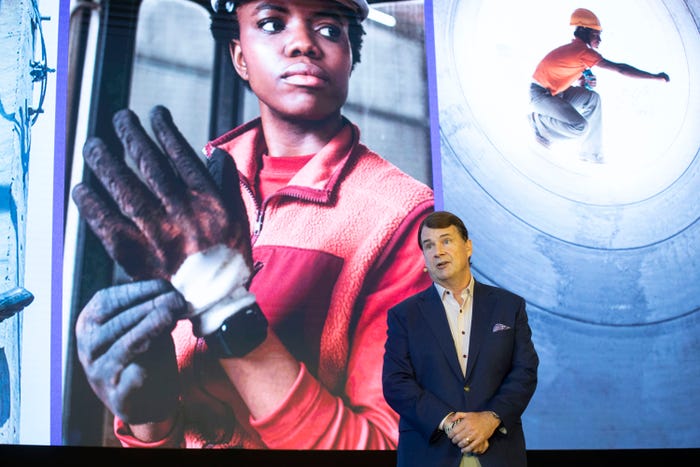UPDATE: Ford CEO Jim Farley has just declared that AI-powered augmented reality is a revolutionary development for technicians working on the company’s trucks, especially amid a critical labor shortage. Speaking at a summit in Detroit on October 24, 2023, Farley emphasized that while AI’s influence has largely been felt in office environments, significant changes are on the horizon for blue-collar jobs.
Farley’s remarks come as the automotive industry grapples with an alarming shortage of skilled workers. The Tech Force automotive trade group estimates that over 100,000 new technician jobs will be needed annually to meet rising demand and replace departing workers—a staggering number far exceeding those currently training for these roles.
In his address, Farley outlined how augmented reality can simplify complex repairs, particularly for vehicles like the Super Duty pickup truck. “If you’re repairing a Super Duty, augmented reality AI is a game changer,” he stated, highlighting the technology’s potential to enhance efficiency and ease in repair processes.
Additionally, Farley noted that diesel technician positions can command salaries exceeding $100,000 per year, requiring at least five years of training. His comments come at a crucial time when the industry is in dire need of skilled labor.
However, Farley warned of the dual-edged impact of AI and automation, echoing sentiments from Walmart CEO Doug McMillon, who recently remarked, “It’s very clear that AI is going to change literally every job.” Both leaders agree that while AI can drive efficiency, it may also lead to job losses across various sectors.
Farley pointed out that most AI solutions currently presented to Ford cater to white-collar efficiency rather than addressing the needs of blue-collar workers. “Very few AI companies come to us and say, ‘We want to dramatically help your efficiency repairing cars or your factory workers,'” he remarked, stressing the necessity for technology that supports essential roles in the economy.
As the automotive industry faces these challenges, the focus on bridging the blue-collar gap has never been more urgent. Farley’s insights at the summit highlight a pivotal moment for workers and companies alike.
The call to action is clear: the tech sector must pivot to support blue-collar workers, ensuring that advancements in AI and automation benefit all levels of the workforce. This developing story underscores the importance of adapting to technological changes while addressing the current workforce crisis.
Stay tuned for more updates on how these developments will shape the future of work in the automotive industry and beyond.






































































